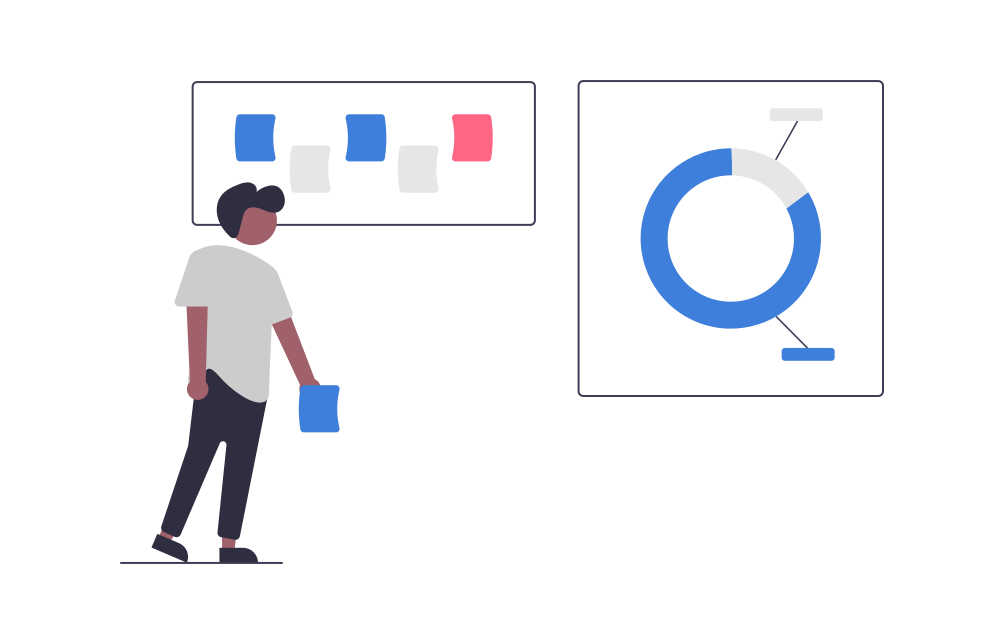FAST, SIMPLE TESTING
IRT / IAT requires detailed design logistics to reduce noise related to individual differences in cognitive processing. Immersion is always ready to record measurements from the smartwatch your audience wears everyday.
This methodology is founded on the concept that as two things become more strongly associated in the brain (sometimes unconsciously), the neural connection between them strengthens and the connections become insulated, which speeds up the rate at which associated signals are sent.
Essentially, when two things are strongly associated, we are faster to respond when they are shown together. Companies who employ implicit testing generally want to understand the extent to which consumers associate their brand or product with particular attributes or concepts.
During the test, consumers are generally presented with a brand logo or a picture of a product in conjunction with a word or brief phrase that could be used to describe it. Consumers then choose the extent to which they agree the attribute or phrase represents the brand or product, with faster responses signifying a stronger brain-based association.

IRT / IAT may be helpful to understand unconscious perceptions consumers have about your brand as well as the larger context in the marketplace.
IRT / IAT does not measure neural activity and is therefore not actual neuroscience, but it is a relatively affordable research option for marketers.
IRT / IAT is non-invasive and measurements can be done in the participants' homes.
IRT / IAT is not valid as a predictor of behavior1.
IRT / IAT does not measure neural activity.
IRT / IAT is not optimized to predict the value the brain assigned to experience, thus is not ideal for neuromarketing.
IRT / IAT requires a comparison point (e.g., a competitive brand, an alternative product mockup, a neutral concept) to provide insights and selecting the wrong comparison point can mean you miss out on essential information.
While IRT / IAT tells you about existing perceptions, the data only highlights broad strengths or weaknesses compared to alternate options. Results do not provide clear next steps for optimization or to ensure consumers will engage in desired future behavior.
IRT / IAT is subject to conscious perceptions, meaning it poorly captures unconscious responses such as racial or gender bias2.
IRT / IAT demands time and specific design logistics to reduce noise related to individual differences in cognitive processing (e.g., avoiding complex words or long statements).
(Yes, that is very fast. No, that is not faster than your computer.)
Immersion is not based on the speed with which respondents brains (and fingers for that matter) respond to a stimuli, does not require extensive additional measurements to resolve for human error in the measurements and does not require a 3rd party vendor to conduct the research.
Immersion passively identifies the electrical signature of the neurochemicals our brains produce to understand your audiences’ connection to your content and accurately predict their future behavior from that measurement.
Immersion is ecologically valid, meaning it takes place in any environment without requiring specific context or test training (teaching them to push the correct buttons when a stimulus appears and to ignore distractions) from your audience that could interrupt the integrity of their experience. Immersion is scalable to any audience size in any setting - using the smart watch they already wear in the environment they are comfortable and natural.

IRT / IAT does not have strong predictive validity1. Immersion is based on 20+ years of research performed by experts in neuroscience who created algorithms that have been proven to predict future action based on emotional responses of your audience with over 80% accuracy.
Not only does Immersion pinpoint the moments of emotional connection or disengagement - it can help you understand what that means for driving future action in your audience.
1 Blanton, H., Jaccard, J., Klick, J., Mellers, B., Mitchell, G., & Tetlock, P. E. (2009).
Immersion pinpoints the exact moments in your content or experience that your consumers are connecting with deeply. This helps predict what moments they will remember and what actions they will take based on your content.
With Immersion’s data - you can alter your content and experiences to make sure the most important parts, like key messages or calls-to-action, are placed at a point where they will have real market impact.

| IRT / IAT | Immersion | |
|---|---|---|
| Costs |
$ $$-$$$$ |
$ $-$$ |
| Operations | ||
| Taps into unconscious consumer reactions | ||
| Easy to Use | ||
| No observation effect | ||
| Nearly instant results | ||
| Shareable, downloadable reports | ||
| Conducted by any team member at any time | ||
| No professional training required | ||
| Experience setup in under 5 minutes | ||
| Easily identified high & low moments | ||
| Automatically produces actionable insights | ||
| Pinpoints exact moments to improve | ||
| Predicts' consumers future behavior with over 80% accuracy | ||
| Quality, actionable insights about individual pieces of content Rather than requiring a comparison point to see insights |
||
| No expensive, specialized equipment | ||
| Scalable to test hundreds of subjects at once | ||
| Natural environment to your audience | ||
| Cost effective | ||
| Easy, low touch audience setup | ||
| Ability to test asynchronously at convenient times for your audience Can scale to thousands of participants without requiring a visit to a lab or testing everyone at once. |
||
IRT / IAT requires detailed design logistics to reduce noise related to individual differences in cognitive processing. Immersion is always ready to record measurements from the smartwatch your audience wears everyday.
IRT / IAT is not useful for neuromarketing. It is less rigorous than in academic applications, which reduces reliability and impact. Immersion's output is proven to predict meaningful market outcomes, like sales and brand engagement.

IRT / IAT helps you understand unconscious associations with your brand, but it can be difficult to act on results to improve those perceptions. Immersion’s second-by-second analysis pinpoints exact moments to improve and drive action.